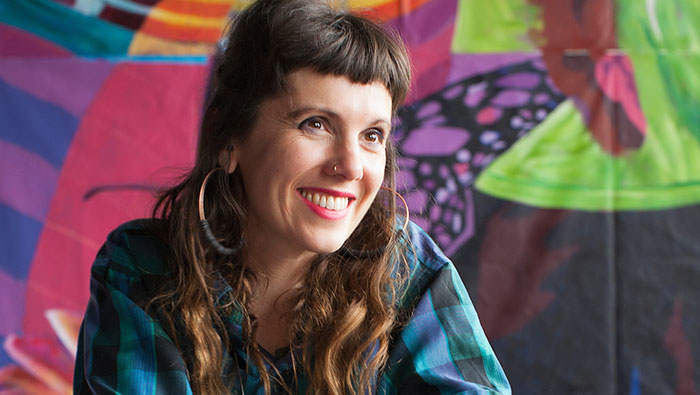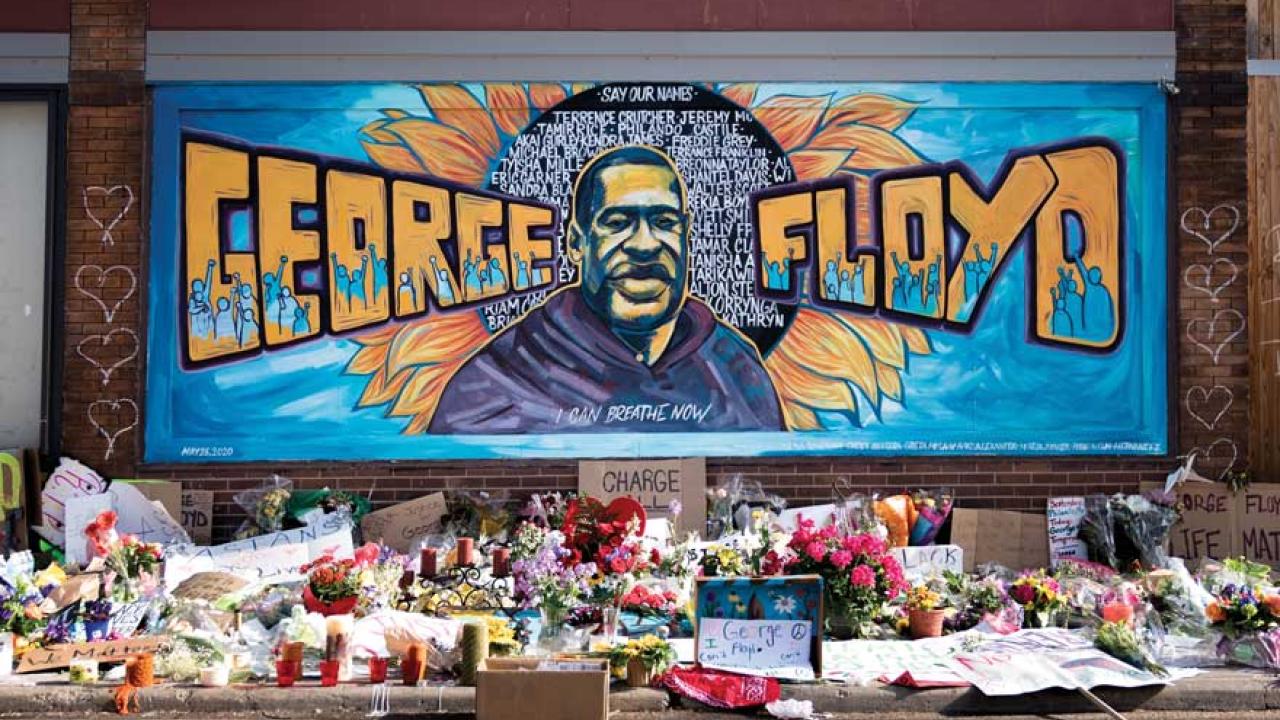By Jeffrey Day, College of Letters and Science
Just days after George Floyd was killed by Minneapolis police in May, alumna and artist Greta McLain ’05, with Cadex Herrera and Xena Goldman, created a mural at the intersection where he died. Floyd’s face emerges from a giant sunflower, the center covered with names of other victims of police violence, and painted across his chest are the words “I Can Breathe Now.” In the weeks following his death, the mural went viral online as Black Lives Matter protests erupted worldwide.

As a child, McLain studied Spanish and learned about the mural tradition that originated in early 20th-century Mexico and blossomed in California as part of the Chicano arts movement in the 1960s and 1970s. Attending college in California seemed a way to connect to this art form, so after high school she left Minneapolis to attend UC Davis. She studied mural making and other political and social art under the tutelage of Professor Malaquías Montoya.
UC Davis legacy of muralists
“He changed my life,” said McLain, who stays in close contact with her former professor and lifelong mentor. “I’m so proud to be his former student and do the work I get to do.”
Montoya, who taught in the Chicana and Chicano studies program and art department for 20 years, has always used his art as a tool for political and social movements. He co-founded Taller Arte del Nuevo Amanecer (TANA), an arts collaborative of the Chicana and Chicano studies program in Woodland, California.
“Whatever the cause, you can address it through art,” Montoya said.
After her studies and with Montoya’s encouragement, McLain moved back to the Minneapolis neighborhood where she grew up, and where Floyd was killed.
“He told me to go first to my community and do community work where I’m from, lifting and luchando (striving) through art,” she said.
McLain has murals across the U.S. and Latin America, but has dedicated the majority of her work to her native Minneapolis with over 30 community murals in schools, community centers, and local businesses.
This story also appeared here and originally in the UC Davis College of Letters and Science Magazine.
